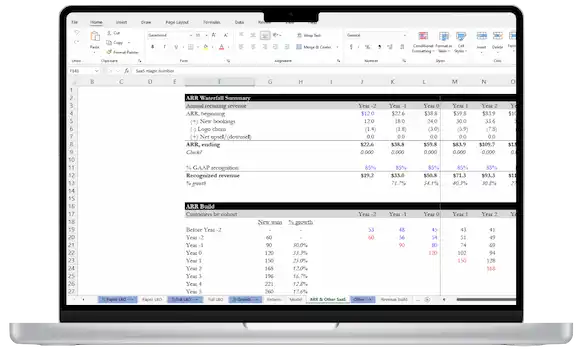In recent years, there is growing interest in the hedge fund landscape.
What are these investment vehicles, who runs them, and what impact do they have on the financial system?
Further, young students and professionals are looking for ways to learn about them and how they might start their career within the hedge fund industry.
That’s why I’ve started this list of the top books written about the hedge fund industry – by reputation or personal experience. The list is designed for those who aspire to have a hedge fund career and are looking to learn as much as they can about the industry from the outside looking in.
More Money Than God: Hedge Funds and the Making of a New Elite by Sebastian Mallaby
“More Money Than God,” written by Sebastian Mallaby, is the authoritative history of the hedge fund industry from its inception in 1960s to modern times.
In his analysis of the theoretical underpinnings of hedge funds, Mallaby argues that, despite their negative reputation, hedge funds actually contribute to economic growth through their transparent responses to market forces and the use of strategies like arbitrage trading, which quickly and effectively correct mispricing and other market anomalies.
Mallaby’s book, compiled in large part through hundreds of hours of interviews with hedge fund managers, provides rare insights into the history of the hedge fund industry, the creation of hedge fund trading strategies, and the psychology and mindset of the people who manage billions of dollars in investment capital on a daily basis.
The Bond King: How One Man Made a Market, Built an Empire, and Lost It All
How that young genius convinced Americans to fund his casino is the subject of The Bond King. Over the course of decades, Bill Gross transformed the once-tranquil bond market into a high-stakes game of secrecy and competition. He also established Pimco, one of the world’s largest and most secretive investment firms, and played a role in reshaping the American financial system in the wake of the Great Recession. His ambition, like that of every other American antihero, would prove his undoing.
Journalist Mary Childs thinks that the key to understanding the bond market and, thus, the victors and losers of today’s money game is to first comprehend the Bond King.
The World for Sale: Money, Power and the Traders Who Barter the Earth’s Resources
The World For Sale highlights a segment of the global economy that receives relatively little scrutiny: that of the commodities traders who buy, store, and sell the world’s resources, many of whom are hedge fund traders.
This is the tale of how a few daring businesspeople facilitated an unprecedented expansion of international trade by bridging resource-rich but politically unstable nations to the world’s major financial hubs.
As a result, you get a guide to the inner workings of capitalism as well as a journey into the uncharted territories of the global economy.
The Man Who Solved the Market: How Jim Simons Launched the Quant Revolution
The Man Who Solved the Market paints a picture of the modern-day creator of high frequency and technical hedge fund trading – Jim Simons.
Written by a veteran Wall Street Journal investigative reporter, this book tells the riveting story of how a world-class mathematician and former code breaker conquered the market.
The book draws on unprecedented access to Simons and dozens of current and former workers. Data-driven, algorithmic methods, like those popularized by Simons, are currently dominating the industry.
The Big Short: Inside the Doomsday Machine
Famous author Michael Lewis follows up his #1 New York Times bestseller Liar’s Poker with a similarly original, character-driven novel, full of anger and black comedy.
Lewis, once again proving himself to be the finest and funniest chronicler of our day, creates a riveting and intriguing story out of a small group of unlikely—really unlikely—heroes.
Even if you’ve seen the movie, this is a worthwhile read to really get a picture of what hedge fund life can be like and how key trades played out during the Global Financial Crisis.
Flash Boys: A Wall Street Revolt
Michael Lewis also writes this book (in addition to The Big Short, also on this list).
The book is a riveting foray into the wilds of electronic stock markets and the associated frauds sparked a war for the very soul of Wall Street. He investigates the schemes of high-frequency traders, who help themselves to inside knowledge on investors’ trades via lightning-fast data linkages.
Michael Lewis’ novelistic story revolves around a diverse ensemble of New Yorkers, including the morally-complex trader Brad Katsuyama from Canada, the fiery telecom expert Ronan from Ireland, and a Dostoevskian cast of Slavic programmers who waver between existential angst and saintly resignation. This ensemble works together to reveal market manipulations and subsequently establish its own fair stock exchange.
In this straightforward and engaging book, Lewis does a remarkable job of explaining the deeply complex world of high frequency trading hedge funds.
When Genius Failed: The Rise and Fall of Long-Term Capital Management
Before there was the Dot Com Crash and the Global Financial Crisis, there was the collapse of Long-Term Capital Management, a key hedge fund that collapsed and spawned chaos in the late 1990s.
In 1993, when it first opened its doors, Long-Term was heralded as the greatest hedge fund ever. The company stunned Wall Street as a $100 billion moneymaking powerhouse for four years, but then it experienced catastrophic losses that threatened not only the biggest banks on Wall Street but the stability of the financial system as a whole.
This classic of business writing by Roger Lowenstein has been updated with a new Afterword in which the author draws parallels to more recent financial crises.
Lowenstein uses internal memos and interviews with dozens of key players to explain not only how the fund made and lost money but also how the partners’ personalities, the culture of Wall Street, and the arrogance of their mathematical certainties, all played a role in the fund’s success and failure.
In his new Afterword, Lowenstein argues that the collapse of Long-Term Capital Management (LTCM) should be understood as a model for market meltdowns in an era of instability and as a wake-up call that Wall Street and government tragically ignored.
Principles: Life and Work
Ray Dalio is the founder of Bridgewater Associates, one of the largest and most successful hedge funds in history.
He’s also an incredibly original thinker.
In this book, he compiles the wisdom he has gained over the course of his extraordinary career. He claims that everything in life, including management, economics, and investing, can be reduced to a set of principles and analyzed mechanically.
Dalio lays out the most efficient ways for individuals and companies to make decisions, approach obstacles, and develop strong teams among the hundreds of practical lessons built around his cornerstones of “radical truth” and “radical transparency” in this book.
Although Dalio’s book is full of fresh concepts for businesses and other establishments, it also provides an insiders look to how he created Bridgewater and what it’s been like running one of the biggest hedge funds on Earth.
The Hedge Fund Book: A Training Manual for Professionals and Capital-Raising Executives
Using a case study format, Richard Wilson’s book leads readers through analyses of different hedge funds at different stages of development and throughout their life cycles.
He provides information that is useful for current and potential hedge fund investors.
Wilson explains how hedge funds work and what hedge fund managers do on a daily basis, from trading to promoting their products.
This textbook-style book on the hedge fund industry was written by Wilson, a consultant for the sector, and is now required reading for those pursuing the Certified Hedge Fund Professional (CHFP) credential.
Hedgehogging
This book is an inside look into the life of a successful hedge fund manager.
Barton Biggs’ “Hedge Hogging” recounts how he went from being an investment analyst at Morgan Stanley to starting and running the multibillion-dollar Traxis Partners hedge fund.
Biggs provides interesting and often amusing insights on investment methods, common investor blunders, and the high-finance world of hedge fund traders, in addition to his fascinating personal narrative.
Further reading
Check out top books to learn about other industries:


 Break Into Growth Equity
Break Into Growth Equity
